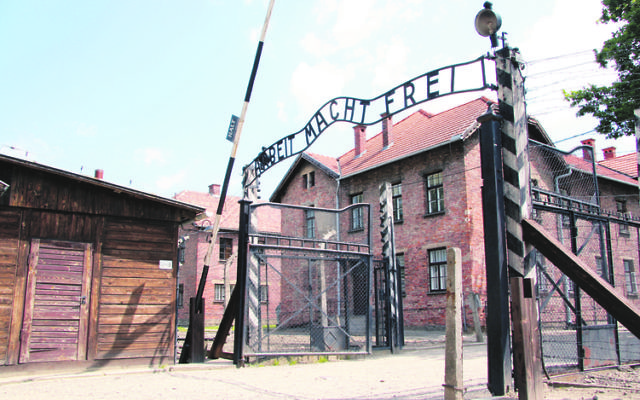New Polish Shoah legislation slammed
Israelis say that the parliament in Warsaw has no right to prescribe prison sentences for people who suggest that Poland bore responsibility for the Holocaust – and top scholars share their dismay.
ISRAEL is at loggerheads with Poland, in a row which Jerusalem says is all about defending the memory of the Holocaust.
Politicians and survivors say that new Polish legislation is an assault on Jewish history, and Israel’s opposition leader Isaac Herzog has claimed that it “includes a deep element of Holocaust denial”.
Israelis say that the parliament in Warsaw has no right to prescribe prison sentences for people who suggest that Poland bore responsibility for the Holocaust – and top scholars share their dismay.
The lower house of the parliament in Warsaw passed a bill which would give custodial sentences to people who describe Nazi camps as “Polish death camps” or who suggest that the Polish nation was complicit in the Shoah.
Israeli dismay at the bill has caused a diplomatic crisis between Jerusalem and Warsaw, with Israel summoning the Polish ambassador for questioning and Poland’s President Andrzej Duda declaring himself “flabbergasted” by Israel’s “violent and very unfavourable reaction”.
But for Israelis, it’s not just diplomacy – it’s personal. Yair Lapid, leader of the centrist Yesh Atid party, asserted: “My grandmother was murdered in Poland by Germans and Poles.”
He insisted that “there were Polish death camps and no law can ever change that”. He “utterly” condemned the bill, claiming that it “tries to deny Polish complicity in the Holocaust”.
Herzog went further, even calling on the government to recall Israel’s ambassador to Poland. In his view the bill is “morally and factually wrong”.
Prime Minister Benjamin Netanyahu called the bill “baseless”, saying: “I strongly oppose it. One cannot change history and the Holocaust cannot be denied.”
Yad Vashem had a softer response. It understands the frustration of Poles at the use of terms like “Polish death camps”, which it considers a distortion, but opposes the bill, fearing that it will result in limitations on Holocaust scholarship.
If the legislation becomes law it is “liable to blur the historical truths regarding the assistance the Germans received from the Polish population during the Holocaust”, said Yad Vashem.
Efraim Zuroff and Abraham Cooper of the Simon Wiesenthal Centre, released a statement condemning the bill – and suggesting that by defending the Polish nation, Warsaw is trying to obscure the acts of Poles based on a technicality.
They said, “While the Polish state no longer existed, many thousands of individual Poles either murdered Jews or informed on them to the Nazis, a phenomenon which has been extensively documented by reputable Polish historians. In addition, there were cases in which Jews seeking to escape the Nazis were murdered by members of the Armia Krajowa, the nationalist underground which was the military arm of the Polish government-in-exile in London.
“Any attempt to whitewash such crimes is totally unacceptable and an unbearable insult to the victims of the Nazis.”
While Israeli scholars often say that politicians are melodramatic, this time top researchers shared their alarm.
Yehuda Bauer, whose family fled the Nazis in Czechoslovakia and is today considered one of the world’s top Holocaust historians, told The AJN that the Israeli reaction should even “be stronger than it is”.
The Polish President’s office claimed after the Israeli outrage that the bill is “aimed at preventing lies and false accusations against the Polish Nation and the Polish State”, and if critics are motivated by “care for the truth about the Holocaust”, they need not worry.
But Bauer said that the bill isn’t just aimed against the use of terms like “Polish death camp”, which he said no serious academic would use.
“What is happening in Poland is an authoritarian regime trying to rewrite the past to fit its nationalist agenda,” he said, claiming that what Polish legislators are aiming at is “to argue that very few Poles killed Jews”.
Talking to The AJN in Jerusalem Bauer commented: “What they are trying to do is really limit the freedom of research.
“According to the language of the law, which is intentionally vague, it’s quite clear that journalists and tour guides and teachers in schools could be accused of attacking the honour of the Polish nation by saying that Jews were harmed in place x or y by Poles.”
NATHAN JEFFAY


comments